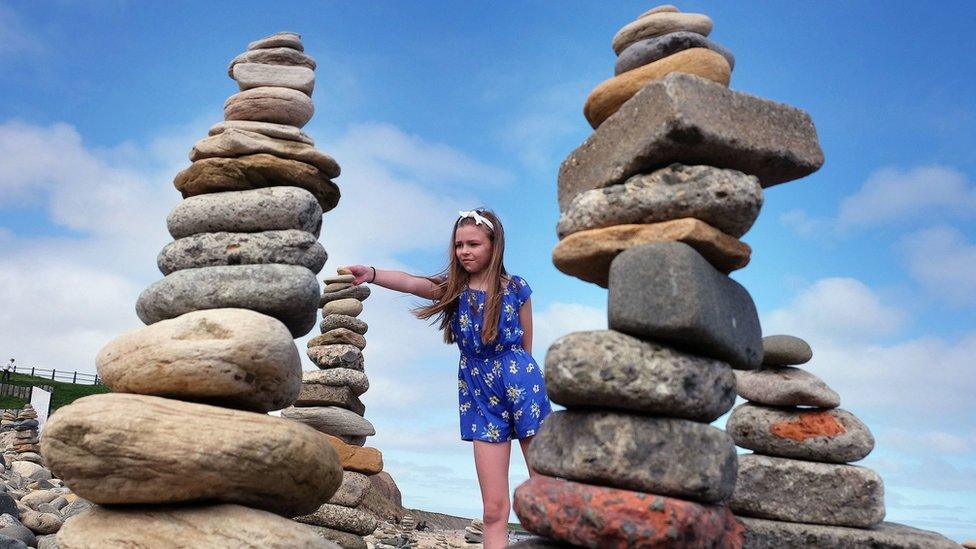How coronavirus restrictions have changed UK beaches
- Published
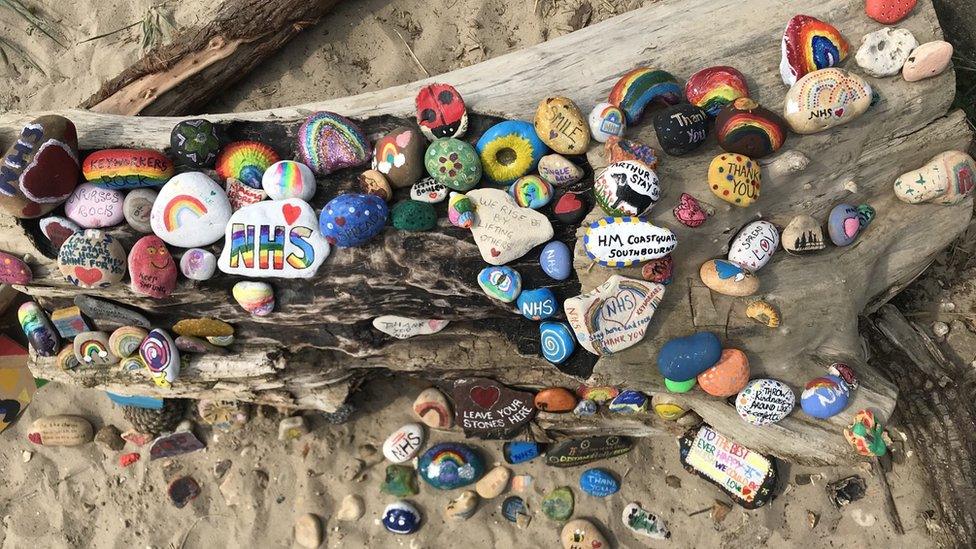
People are leaving painting pebbles to say thank you to the NHS and other key workers
As summer approaches, England's beaches are looking very different places from the ones we are used to.
The deckchairs, buckets and spades have gone, while dogs - usually banned on tourist beaches at peak times - have been allowed by some councils to stay.
Some spots have become a place where only locals can exercise while others are seeing some unusual wildlife.
And few people have been stopping, except perhaps to contribute to artworks made in the pebbles and sand.
In Bournemouth, Christchurch and Poole, dogs would usually be banned on the beaches from 1 May to 1 September but this year, to help with social distancing measures, the restrictions have been temporarily eased.
Beaches in Morecambe in Lancashire and Weston-super-Mare in Somerset, as well as Skegness, Mablethorpe and Sutton on Sea in Lincolnshire, are among others to have their seasonal dog bans lifted or relaxed.
North Somerset councillor Mike Bell said opposing views on dog restrictions made it a "Marmite issue" but added: "We feel it's appropriate to enable everyone to use the spaces available to conduct their daily exercise."
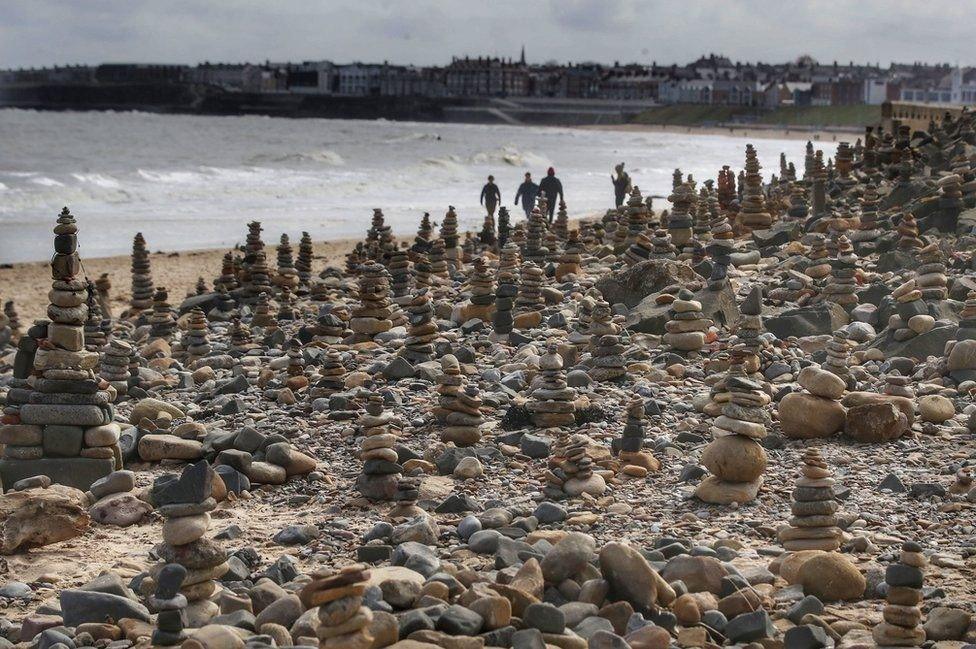
Whitley Bay in North Tyneside has been taken over by pebble stacks
In North Tyneside, locals have been building pebble stacks on the beach at Whitley Bay, creating a huge, evolving art installation.
Photographer Owen Humphries said: "The pebble stacks keep growing as people add them on their daily exercise where hundreds, if not a thousand, have been built."
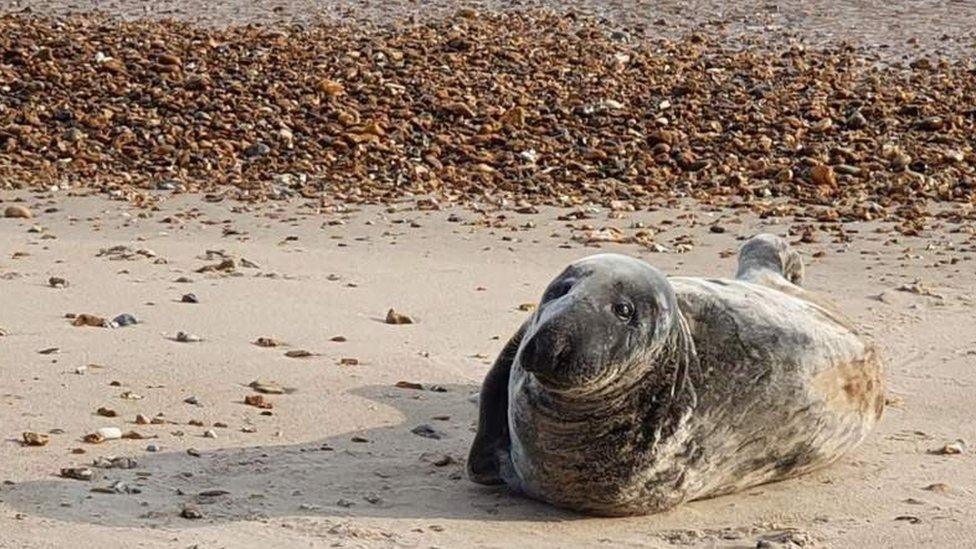
Dorset Wildlife Trust said the grey seal had hauled itself onto the normally busy beach
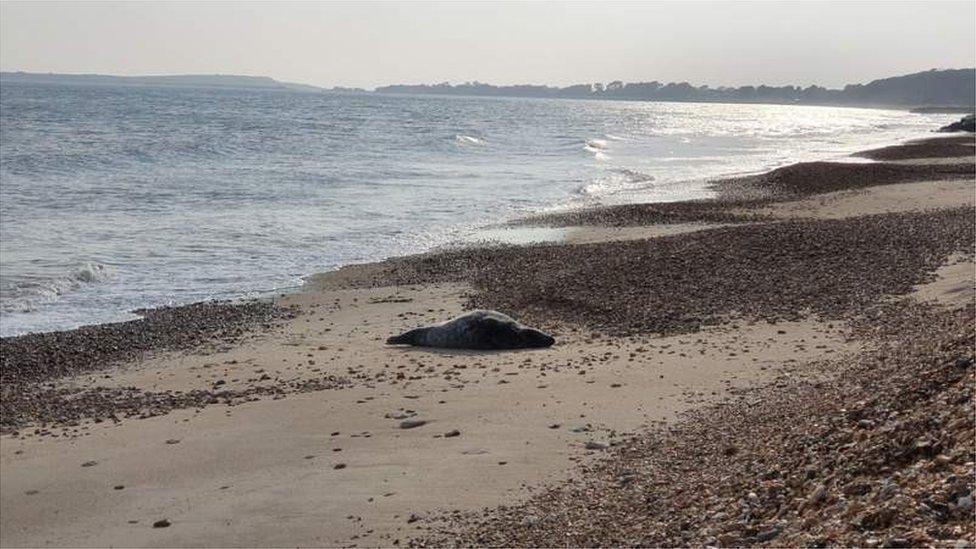
The seal made the most of the deserted beach on the Hampshire-Dorset border
In Highcliffe, Dorset, a grey seal was seen on the normally busy beach below Hoburn Naish Holiday Park, which has been temporarily closed.
Imogen Rayner, who photographed the seal, said: "It was a very special moment in these odd times."
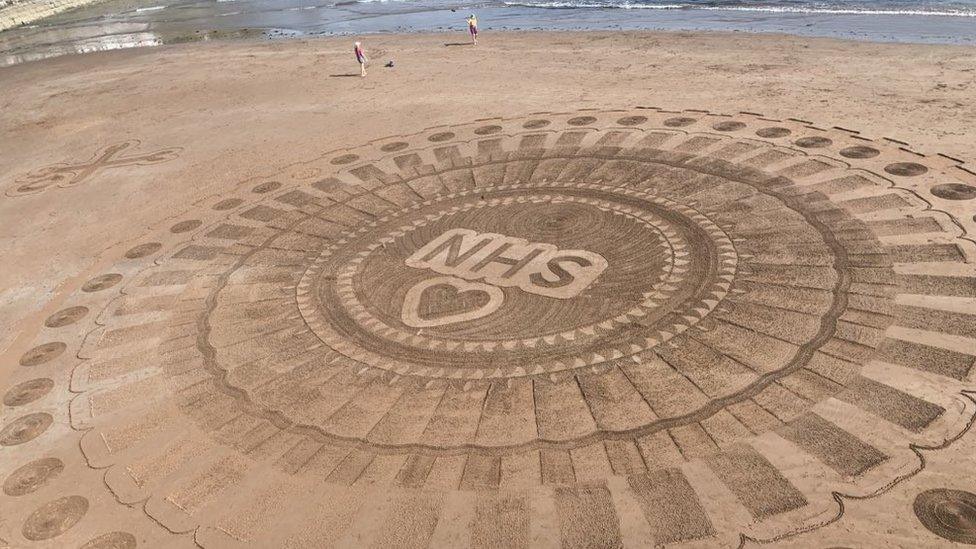
The tribute on Torquay beach was signed by the Torquay Sand Man
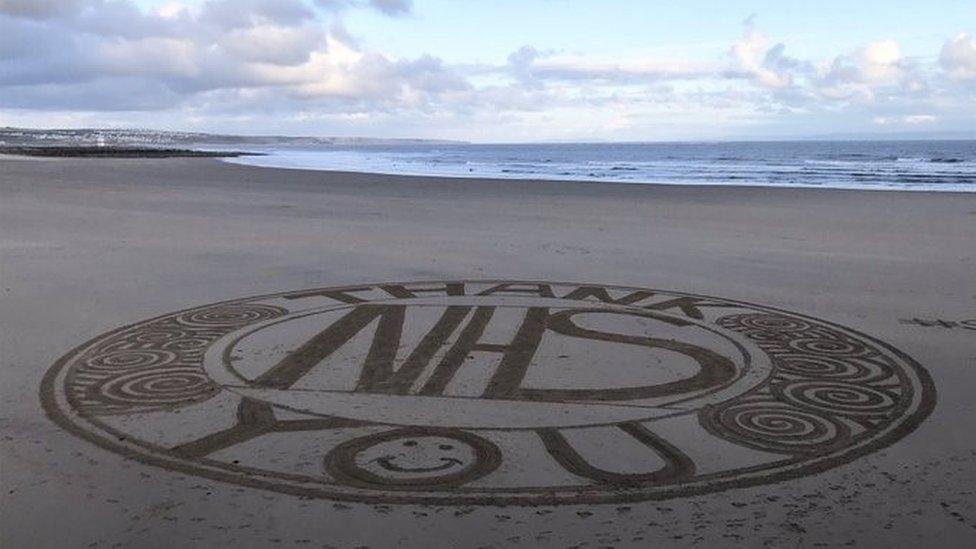
Art has appeared in Sandy Bay - known locally as Coney Beach - in Porthcawl
Elsewhere, artwork has been appearing on beaches, much of it dedicated to the NHS.
The Torquay Sand Man, known for creating elaborate sand art in the Devon resort, created a huge motif on the beach.
Sand art tributes have also appeared in Blackpool, Bournemouth, Porthcawl in south Wales and Bamburgh Castle in Northumberland.
Avon Beach, in Dorset, has become the site of a growing collection of painted pebbles dedicated to key workers.
The stones have been appearing on a piece of driftwood alongside the promenade near Mudeford.
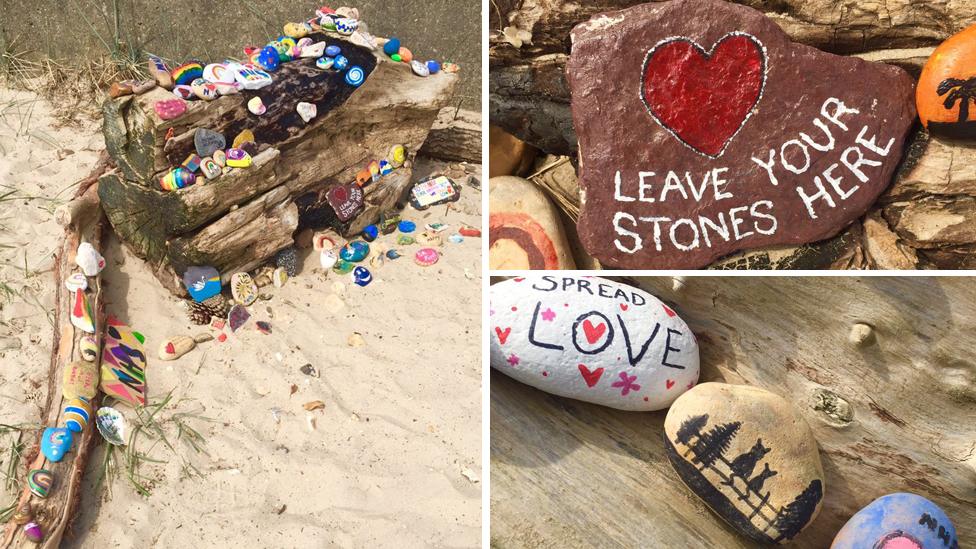
People are painting stones and leaving them on Avon Beach, near Christchurch

A SIMPLE GUIDE: How do I protect myself?
AVOIDING CONTACT: The rules on self-isolation and exercise
LOOK-UP TOOL: Check cases in your area
MAPS AND CHARTS: Visual guide to the outbreak
VIDEO: The 20-second hand wash
- Published30 April 2020
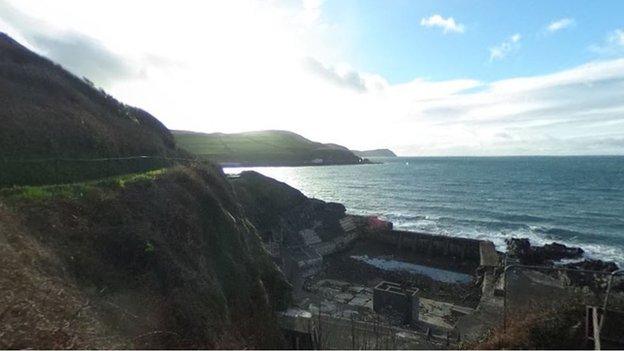
- Published28 April 2020

- Published23 April 2020
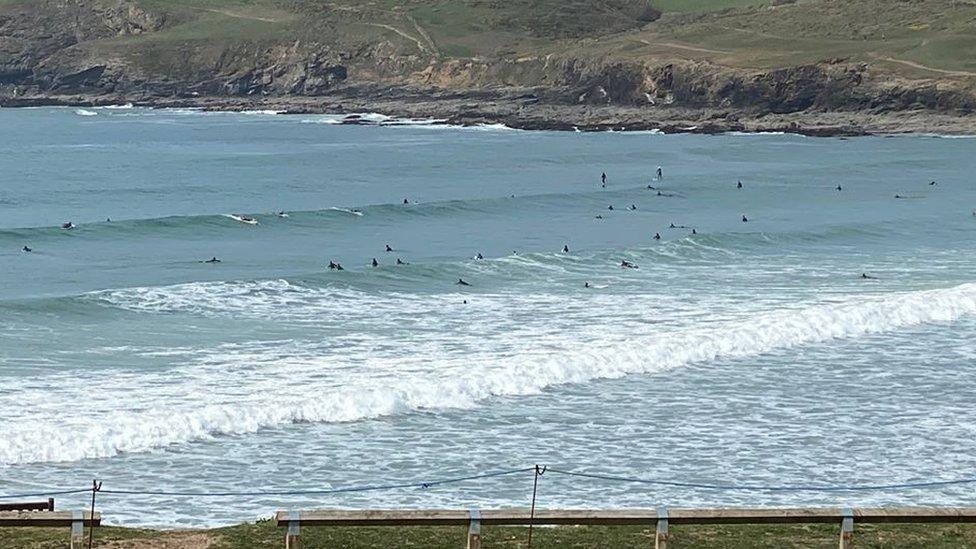
- Published20 April 2020
